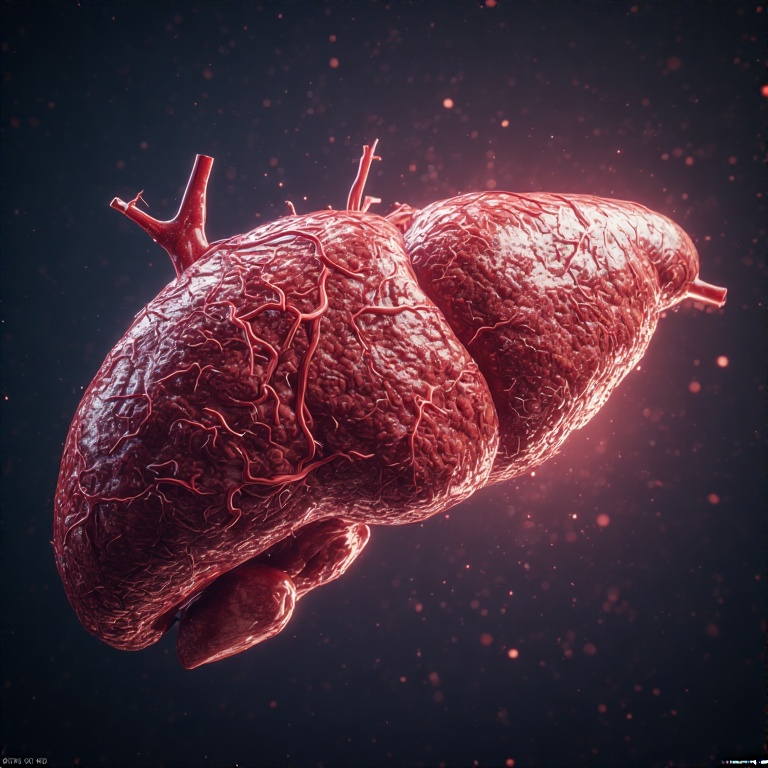Liver Damage in Young Age
Precautions and Prevention
Despite its healing potential, severe strain or damage can lead to chronic diseases, some of which may be irreparable. In recent years, liver injury in young individuals has become a major issue due to lifestyle choices, poor eating habits, and environmental factors.
Common Causes of Liver Damage in Young People
1. Excessive Alcohol Consumption Alcohol is a primary cause of liver disease, especially in young individuals. The liver metabolizes alcohol, but excessive drinking leads to inflammation, fatty liver disease, and finally cirrhosis. Binge drinking, a typical practice among young adults, promotes liver damage.
Precautions: - Limit alcohol intake or avoid it completely.
2. Unhealthy Diet and Obesity A diet heavy in processed foods, sweets, and trans fats contributes to non-alcoholic fatty liver disease (NAFLD), more common in younger populations. Obesity and insulin resistance further worsen liver damage.
Precautions: - Eat a balanced diet rich in fruits, vegetables, whole grains, and lean proteins. - Reduce intake of fried foods, fizzy beverages, and processed snacks.
3. Overuse of Medications and Supplements Many young people misuse over-the-counter medications (e.g., acetaminophen) or take unregulated supplements, which can cause drug-induced liver harm. Even seemingly harmless herbal supplements may contain chemicals detrimental to the liver.
Precautions: - Avoid self-medicating; see a doctor before taking any supplements. - Follow dosage directions properly for painkillers. - Be cautious with herbal or weight-loss supplements; research their safety.
4. Viral Hepatitis Infections Hepatitis B and C are viral infections that damage the liver, leading to chronic illness if ignored. Young adults may get these viruses through unprotected sex, infected needles, or unsterilized medical equipment.
Ensure medical operations (tattoos, piercings) are done using sterile tools.
5. Sedentary Lifestyle Lack of physical activity slows metabolism, adding to fat storage in the liver and raising the risk of NAFLD.
Precautions: - Engage in at least 150 minutes of moderate activity every week. - Incorporate strength training to boost metabolic health. - Avoid prolonged sitting; take pauses to move during the day.
Signs of Liver Damage to Watch For Early identification of liver disorders can avert serious effects. Symptoms include: - Persistent weariness - Jaundice (yellowing of skin and eyes) - Unexplained weight loss - Dark urine or pale stools - Abdominal pain or swelling - Nausea and vomiting If any of these symptoms persist, get medical assistance immediately.
Preventive Measures for Long-Term Liver Health
1. Limit Processed and Sugary Foods High sugar intake leads to fat storage in the liver, increasing the risk of metabolic diseases.
2. Avoid Smoking and Secondhand Smoke Chemicals in cigarettes contribute to liver damage and increase cancer risk.
3. Get Regular Health Check-ups Routine blood testing can detect early indicators of liver dysfunction before symptoms arise.
4. Practice Safe Hygiene Wash hands frequently to prevent infections that may damage liver function.
**Protect Your Liver: Precautions to Prevent Liver Damage at a Young Age**
In today's fast-paced world, young humans often adopt lifestyles that can be damaging to their liver health. With rising alcohol intake, bad diets, and exposure to dangerous pollutants, the risk of liver injury is on the rise among the younger generation. Understanding the need of taking care to safeguard your liver at a young age is vital for sustaining general health and well-being.
**Understanding Liver Damage**
Liver damage occurs when the liver is unable to operate effectively owing to factors such as excessive alcohol consumption, poor diet, viral infections, and exposure to toxins. If left unchecked, liver damage can proceed to catastrophic illnesses such liver cirrhosis, fatty liver disease, and liver cancer.
**Precautions to Prevent Liver Damage**
1. **Limit Alcohol Consumption:** One of the main factors to liver disease is excessive alcohol drinking. To protect your liver, it is crucial to restrict your alcohol intake and avoid binge drinking. Opt for non-alcoholic beverages or limit yourself to one or two drinks on exceptional occasions.
2. **Maintain a Healthy Diet:** A balanced diet rich in fruits, vegetables, whole grains, and lean proteins can assist maintain liver function. Avoid processed foods, sugary snacks, and fatty meals that can raise the risk of liver damage. Be cautious of your caloric consumption and choose nutrient-dense foods to fuel your body.
3. **Stay Active:** Regular exercise is vital for maintaining a healthy weight and supporting liver function. Engage in physical activities like walking, running, swimming, or yoga to keep your body moving and lower the risk of obesity and fatty liver disease.
4. **Avoid Toxins:** Environmental pollutants and chemicals can affect your liver and hinder its ability to cleanse the body. Be aware of home cleaners, pesticides, and pollutants that may contain dangerous compounds. Choose organic products and minimize your exposure to hazardous substances to protect your liver health.
5. **Get Regular Check-ups:** Routine medical check-ups and liver function tests are vital for monitoring your liver health. Talk to your healthcare practitioner about screening for liver illnesses and maintaining healthy liver function. Early detection and action can prevent significant problems and improve outcomes.
Remember to prioritize your liver health and make mindful choices to safeguard this crucial organ from injury at an early age. Your future self will thank you for taking care of your liver today.
Thank you for visiiting my blog please share to your friends & family for encouraging me.
Nivas Cherry 🍒
cantact details :
email : nivascherry595@gmail.com




Post a Comment